Contact: Christopher German, Money Transmitters/Digital Assets Counsel
Phone: (402) 471-2171
Email: christopher.german@nebraska.gov
LB 474 – Update to Nebraska’s Money Transmitters Act
June 16, 2025 – Legislative Bill 474 (2025) (“LB 474”) was signed into law by Governor Jim Pillen on May 20, 2025, and takes effect October 1, 2025. Licensees and applicants are encouraged to review LB 474 because it updates the Nebraska Money Transmitters Act. This update was designed to add state-to-state uniformity and will allow the Department to more effectively and efficiently regulate the money transmission industry by incorporating much of the Conference of State Bank Supervisors’ model language, while tailoring the statutory approach to the unique circumstances facing Nebraskans.
Definitions
LB 474 organizes the definitions into one section for better clarity. The bill also adds definitions to clarify when activity occurs “in this state,” how the “multi-state licensing process” is leveraged, and defines the “average daily money transmission liability,” which impacts the required surety bond coverage.
Exemptions
LB 474 clarifies existing exemptions from the requirement of licensure for activities the Department has understood to not require licensure under current law. These newly codified exemptions include registered futures commission merchants, registered securities broker-dealers, and third-party service providers to an agent or exempt entity, subject to certain conditions and operating in the ordinary course of business. The bill allows the Director to require information showing the person qualifies for the claimed exemption.
Permissible Investments
LB 474 expands the available options for licensees to use for permissible investments while establishing limits for certain permissible investments with different risk profiles, allowing the Department greater flexibility to tailor its approach with licensees.
Increased Net Worth Requirements
Minimum net worth requirements will be increased from $50,000 to the greater of $100,000 or 3% of total assets for the first $100 million, 2% of additional assets for $100 million to $1 billion, and 0.5% of additional assets for more than $1 billion.
Updated Surety Bond Requirements
This update maintains the lowest bond coverage required of $100,000 but increases the maximum bond coverage from $250,000 to $500,000, which is based on the newly defined “Average Daily Money Transmission Liability.” LB 474 retains the Department’s ability to file a claim on the bond on behalf of customers.
Adjustment to Application and Renewal Fees
LB 474 increases the application fee from $1,000 to $1,500, while increasing the renewal fee from $250 to $750, and establishing a change-of-control fee of $1,500 for licensees.
Audited Financials
This update also codifies current Department requirements for licensees to provide audited financial statements ninety days after the end of the fiscal year. The Department has granted reasonable extensions for licensees and will continue to do so.
Timely Transmissions and Refunds
LB 474 codifies a requirement for licensees to complete payment obligations within the time stated on the instrument entered between the customer and the licensee, unless fraud is suspected. LB 474 establishes a process for refunds for transactions within ten days of written request from the customer under certain conditions.
Networked Supervision
LB 474 codifies the Department’s existing practice of leveraging a networked supervision approach to regulation, in which the Department can coordinate examinations with other state agencies and enter into information sharing agreements with other state or federal agencies. The Department has utilized this cost-saving and best-practice approach for both mortgage banker licenses and money transmitter licenses.
Consistent State Licensing
The update codifies the Department’s current practice of utilizing a cooperative approach among state regulators to review applications.
Questions
Licensees and applicants should review LB 474 to ensure compliance with the updates to the Nebraska Money Transmitters Act. If you have questions, please call NDBF at (402) 471-2171 or email dob.consumerfinance@nebraska.gov.
Industry Advisory: Money Transmitters
![]() Financial Institution Directors: Duties & Responsibilities (Manual)
Financial Institution Directors: Duties & Responsibilities (Manual) ![]() Raising Small Business Capital in Nebraska through Securities Sales
Raising Small Business Capital in Nebraska through Securities Sales![]() NDBF Ag Week Fact Sheet: Nebraska's Community Banks and Agriculture
NDBF Ag Week Fact Sheet: Nebraska's Community Banks and Agriculture![]() Relationship Investment Scams
Relationship Investment Scams![]() Social Isolation and the Risk of Investment Fraud
Social Isolation and the Risk of Investment Fraud ![]() Investment Professional Disclosure Forms: What Should Investors Look For?
Investment Professional Disclosure Forms: What Should Investors Look For?![]() How can a Nebraska chartered bank help with community development projects?
How can a Nebraska chartered bank help with community development projects? ![]() Your Advocates...The Nebraska Department of Banking and FinanaceActivities
Your Advocates...The Nebraska Department of Banking and FinanaceActivities ![]() Financial Institution Directors: Duties & Responsibilities
Financial Institution Directors: Duties & Responsibilities![]() Who Do I Call? A reference guide for the financial industry
Who Do I Call? A reference guide for the financial industry![]() Mortgage Lending: Before You Sign...
Mortgage Lending: Before You Sign...![]() How the Nebraska Foreclosure Act Can Help You (8.5in x 14in brochure)
How the Nebraska Foreclosure Act Can Help You (8.5in x 14in brochure)![]() Understanding Broker-Dealer Fees
Understanding Broker-Dealer Fees![]() Invest Your Time Before Your Money
Invest Your Time Before Your Money![]() Guardian Brochure
Guardian Brochure![]() Scams, Schemes & Swindles: Top Ten Investment Traps
Scams, Schemes & Swindles: Top Ten Investment Traps![]() Seniors & Fraud...Protect Yourself with Information
Seniors & Fraud...Protect Yourself with Information![]() Informed Investor Advisory Marijuana
Informed Investor Advisory Marijuana![]() Informed Investor Advisory Binary Options
Informed Investor Advisory Binary Options![]() Informed Investor Advisory Financial Service Providers
Informed Investor Advisory Financial Service Providers![]() Informed Investor Advisory Unicorns
Informed Investor Advisory Unicorns![]() Consumer Advisory - Cryptocurencies and ICOs
Consumer Advisory - Cryptocurencies and ICOs![]() Informed Investor Advisory Cryptocurrency
Informed Investor Advisory Cryptocurrency![]() Informed Investor Advisory ICO
Informed Investor Advisory ICO![]() Investor Advisory: Precious Metals
Investor Advisory: Precious Metals![]() How to Identify Telemarketing Investment Fraud
How to Identify Telemarketing Investment Fraud
